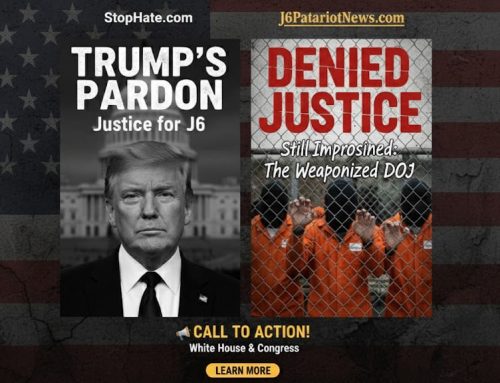The 1512(c)(2) charge,* which carries a maximum penalty of 20 years of imprisonment, has been used by the government to coerce defendants to plead guilty to lesser offenses to avoid potentially long jail sentences.
Our justice system has been using this sketchy tactic for a long time. It wasn’t invented for J6er’s. They overcharge defendants, then later offer a plea agreement where they will remove the greater charge, if the defendant agrees to plead guilty to a lesser charge. Often defendants who know they are not guilty will agree to plead guilty anyway, in order to avoid the possibility of horrendous amounts of jail time. It is rarely a good “deal” for the defendant and gives a “win” to the government’s lawyers they can put on their record. This seems to be why about 250 January 6th defendants have been charged with 1512(c)(2).
Several J6 defendants, following the questionable advice of public defenders, or even private lawyers, have pleaded guilty to the now infamous 1512(c) charge, “Obstruction of An Official Proceeding”.
The charge was added to indictments after the fact and in an arbitrary manner. No one knows why one person was charged with 1512(c) while another was not in cases that otherwise look very similar. Some defendants entered the Capitol and, but were not charged, while others did not enter the Capitol, yet they were charged, and vice versa.
Many attorneys are disputing this charge at this moment and are filing motions to dismiss.
History of 1512(c)
1512(c) was originally added to the general 1512(c) charge description because of the special ENRON case and addresses a specific loophole. Senator Hatch said, “the amendment strengthens an existing federal offense that is often used to prosecute document shredding and other forms of obstruction of justice,” noting that current law “does not prohibit an act of destruction committed by a defendant acting alone.”
Did any January 6th defendant shred documents related to the certification of the 2020 election?
We know of NO J6er’s who attempted to shred documents in any way. None even got close to any document for that matter. What document would it even be? Electoral certificates? Those were not even intended as evidence and nobody tried to get to them that we know of.
Judge Nichols judgment on 1512(c)(2)
Judge Nichols dropped the charge for three defendants: Joseph Fischer, Garrett Miller, and Jake Lang. However, the government has appealed this decision. The oral arguments for this case are scheduled for December 12, 2022.
If Judge Nichols’s decisions are upheld–and some lawyers doubt this can happen given the corruption of the courts–could it be grounds for appeal even for those who pleaded guilty to it, mostly under threat of long prison sentences?
Many of the plea agreements say the defendant will not appeal, even if the law is found unconstitutional. That statement itself appears to be unconstitutional.
If the defendant’s attorney never filed a motion to dismiss based on the grounds of unconstitutional application, vagueness, or grounds the appellate court upholds for Nichols, it is doubtful the plea will get overturned without a judicial ruling that all pleas to the charge are null and void.
If Judge Nichols’s decision were struck down, defendants could appeal to the Supreme Court, which may or may not take the case.
Considering the recent change in the House of Representatives, and the possible change in attitude of the general public, there is hope that the Supreme Court would hear the case.
If one pleaded guilty to 1512(c)(2), which we do not recommend, there might still be a remedy.
A defendant who pleaded guilty and whose sentence became final (usually 14 days after sentencing) has one year to file a section 2255 motion to get the charge and sentence dismissed. If it’s more than a year after the above time and the person is still on supervised release or in prison, there may be an exception to the one year given “new evidence”, i.e. the ruling. But the plea deal conditions likely require a showing of “ineffective counsel” for starters. That’s why attorneys need to get the condition of not appealing, even if the law is found to be unconstitutional**, out of plea deals before agreeing to them. The “one year” limit for Section 2255*** is a big deal. If one pleaded guilty, they need to get their attorney to act before it is too late.
Note that if someone pleaded guilty to section 1512 and another charge, such as a misdemeanor, they might get the felony expunged and the sentence adjusted just for the misdemeanor. The defendant is not off the hook if all they pleaded to was 1512 and the plea and sentence get thrown out. They go back to being charged with whatever else was on the indictment. The government does not have to offer a new plea deal. The government will likely get a superseding indictment that includes section 231 civil disorder (a felony, but where sentences have been 8 months or less). The defendant can go to trial with section 1512 dismissed.
*18 U.S.C. § 1512 – U.S. Code
Whoever corruptly—
alters, destroys, mutilates, or conceals a record, document, or other object, or attempts to do so, with the intent to impair the object’s integrity or availability for use in an official proceeding; or
otherwise obstructs, influences, or impedes any official proceeding, or attempts to do so…
shall be fined under this title or imprisoned not more than 20 years, or both.
** Normally, if a law is found unconstitutional (in application for example) then those convicted would have that voided/expunged. The appellate ruling will have to be read line for line. Then the constitutionality of the plea deal language might require a civil suit if the appellate court doesn’t address it.
*** Actual Innocence | §2255 Statute of Limitations | 802-444-4357
This is a main argument to allow filing a Section 2255 motion. If a law is voided due to unconstitutionality (vagueness or in application) then the defendant is innocent.
Further Reading
Actual Innocence Status of Limitation.
Corruption of a Term: The Problematic Nature of 18 U.S.C. §1512(c), the New Federal Obstruction of Justice Provision by Daniel A. Shtob






Leave A Comment